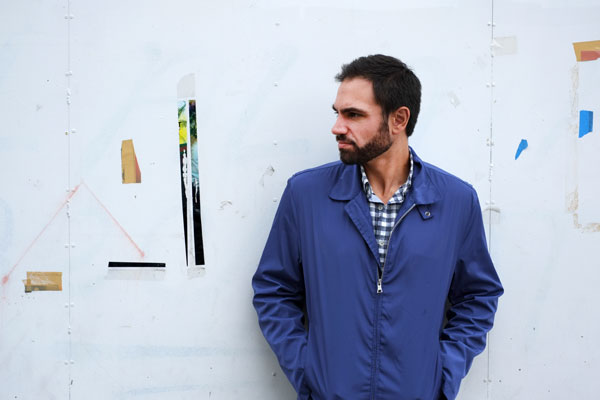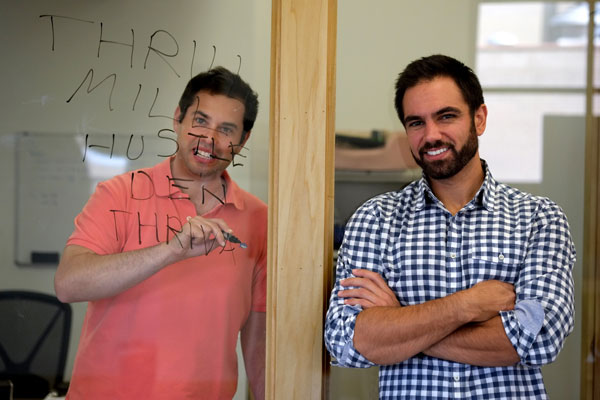“Picking the next great thing is a lot like picking stocks,” says Bobby Zappala. “I’d rather bet on people.”
Zappala is sitting on a stool at Livermore, the industrial-chic bistro that opened in the Werner building in East Liberty where the Waffle Shop used to be. The entrepreneurial ethos that is sweeping the neighborhood is his favorite subject and he is playing a part as the CEO of Thrill Mill, a nonprofit accelerator for startups on Broad Street.
Successful business is about people and relationships, he continues. Take Livermore, the second restaurant by the same team who opened Bar Marco in the Strip, one of whom is his good friend, Bobby Fry.
“This neighborhood is going to be a mecca of entrepreneurship and innovation,” Zappala says as he looks around. “The energy here is really high.”
Zappala believes the key to the next great Pittsburgh success story is in supporting really bright people, preferably those who don’t yet have mortgages to pay or kids to raise, and giving them the right conditions in which to flourish. He not only believes it, he sees it in the people who are attracted to the hewn feel of the neighborhood.
“To find the next Facebook, you arm as many people as possible with skills, give them a good environment and eventually things start happening,” he says. “If you try to handpick one from a pool of 50, it’s never going to work. If we make this happen, we’re accomplishing something in Pittsburgh.”
He makes it all seem easy. Clearly he’s good at making connections. He serves on the board of the East Liberty Quarter Chamber of Commerce and regularly drops in on meetings of the East Liberty Development Corp. He also has Zachary Quinto good looks, light beard and all, and comes across as the boy-next-door, which he is, having grown up on the same street as this writer in Mt. Lebanon.
Zappala was raised in a prominent Pittsburgh family that has a century-long history as leaders in law, business and real estate. (Pittsburgh D.A. Stephen Zappala Jr. is his cousin.) And now Zappala is making his mark by taking an unconventional approach as a catalyst for change through the economic growth of Pittsburgh.
Working in the startup sector was not in his original plan, he admits. He graduated from Mt. Lebanon High School in 2000 and Duke in 2004. From there, he jumped into politics, working in Washington, D.C. for then-Sen. Joe Biden before returning to Pittsburgh and law school at University of Pittsburgh.
He came back because he liked what was going on in his hometown at the time: the urban renewal of the waterfront, South Side and East Liberty. “It seemed like the whole city was growing younger,” he says. “There was a new openness.”
He joined Buchanan, Ingersoll & Rooney, but his career as an attorney was short-lived. He was hanging around with a diverse group of friends who had big entrepreneurial ideas, something that greatly interested him.
The group became the original founders of Thrill Mill: Luke Skurman of Niche (formerly College Prowler), Serge Smailbegovic, vice president at BNY Mellon and a native of Bosnia; Kevin Heher, president of Liberty Insurance and Alex Palma, an ER physician at West Penn Hospital.
“We were like a boy band that got put together intentionally,” Zappala laughs. “You can’t make this stuff up.”
The group started by throwing barbecue and beer parties in the parking lot next to Skurman’s home to raise money. The first successful Baller BBQ grew into Business Bout, a contest that awarded $5,000 to a promising entrepreneurial startup idea. Business Bout grew into Thrill Mill and its offspring Hustle Den, the workshop and business accelerator that houses 13-15 early stage companies.
The backyard barbecues evolved into the more upscale Thrival Festival—the event first was held at Bakery Square on Labor Day.
Thrill Mill officially launched in January of 2013 with the help of an infusion of funding that was raised over this period, about $1.3 million from an anonymous donor, the RK Mellon Foundation and the URA. The Thrival Festival, which supports the Business Bout annual competition, raised another $25,000.
Zappala quit his day job at the law firm to take the helm of Thrill Mill. The funding, he says, should take the organization through the next three years. Thrill Mill is in the process of hiring a full-time COO.
“Bobby has been a great connector,” says Skurman, who continues to serve on the board. “He took a dramatic pay cut working as a corporate attorney to do what he’s doing in the nonprofit space. He believes in it, and he believes in Pittsburgh.”
Hustle Den operates in a former industrial building with Thrill Mill. The 5,000 square-foot space is big and bright, with high ceilings and large windows that overlook the neighborhood, a glass-enclosed conference room and several breakout rooms. And it has the requisite ping-pong and foosball tables and a smattering of whiteboards.
Companies accepted into the space receive a free year of rent in return for five percent of the company’s earnings. AlphaLab Gear, the Innovation Works manufacturing startup incubator, plans to move into the same building in the near future.
Zappala sings the praises of his landlord, real estate developer Eddie Lesoon of the Wedgwood Group, who has been holding on to properties in East Liberty, betting on the region’s renewal and the right tenants rather than seeking financial gain.
Thirteen startups currently work out of Hustle Den. Among them is Allegheny Organics, a waste recycling service. Open Curriculum provides high-quality learning materials to children in struggling countries around the world. Student InTuition helps students repay student loans by finding them career-related work.
“Bobby has risked his professional and personal comfort to take a chance on Thrill Mill,” says Anup Aryal of Open Innovation. “His professional experience as well as network is a very big asset to a lot of the startups at Thrill Mill.”
As time goes on, the Thrill Mill model will evolve with the ultimate goal of becoming a fully sustainable organization, Zappala says. A “buttoned-down” fundraiser and mentorship events are ideas in the making. The organization wants to expand its reach beyond the East End, bringing in entrepreneurs from all parts of the region to build businesses.
“The entrepreneurial scene in Pittsburgh is busting out and moving beyond existing successful models like AlphaLab and Idea Foundry,” he says. “That’s a good thing. The best way for us to make an impact is to get into the private sector and begin building relationships and exercising our personal principals.”



